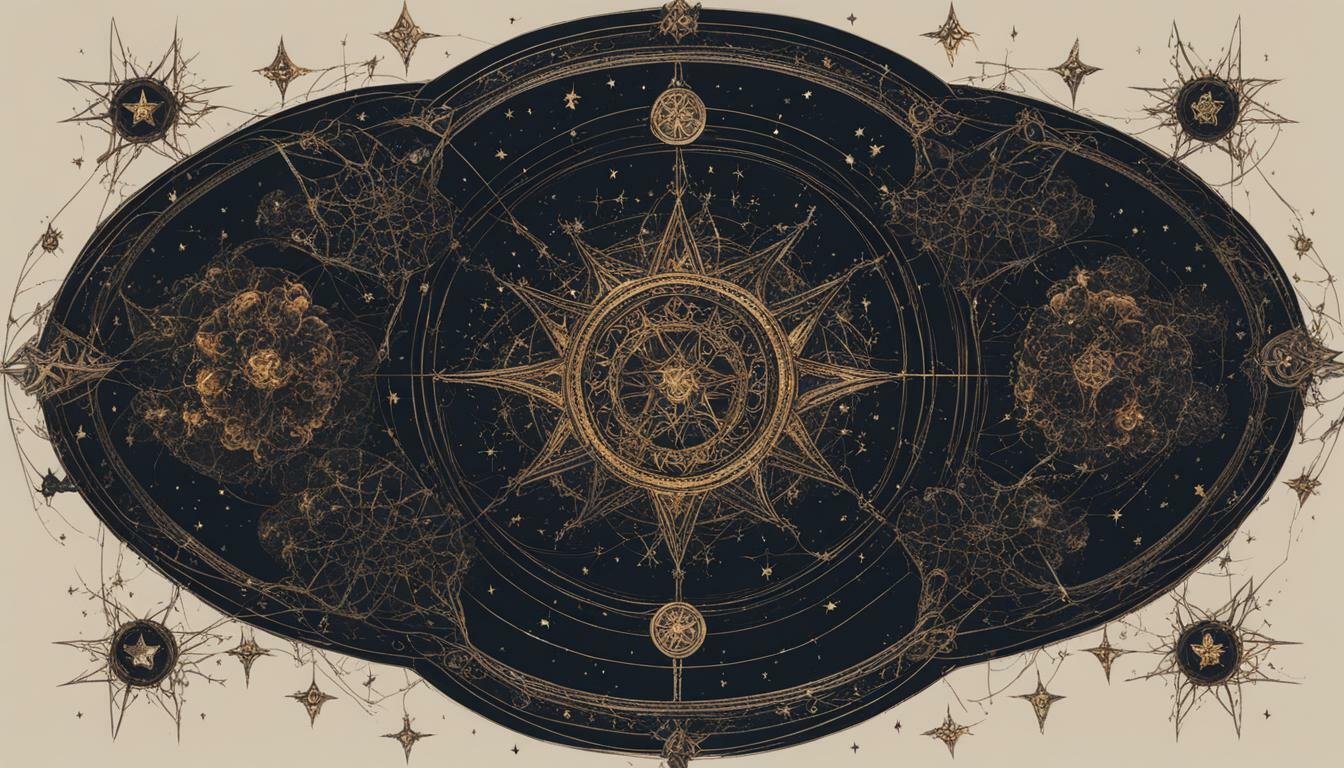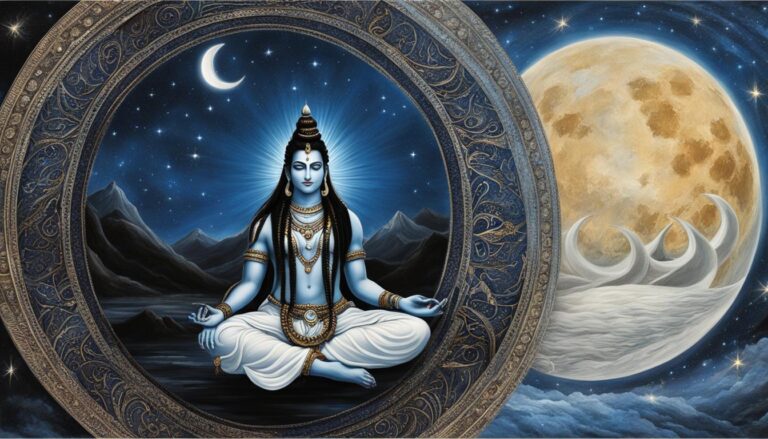Is Astrology Demonic? Exploring Myths and Facts
As astrology gains popularity, questions arise about its potential connection to demonic forces. The Bible condemns astrology as a form of divination, cautioning against its use. However, it also makes mention of wise men who relied on astrology to find Jesus.
Some argue that astrology can replace God and invite spiritual evil into our lives. Islamic teachings generally condemn fortune-telling, but scholars in Sufism contend that astrology may be permissible as a scientific study. It is believed that astrology has ancient roots in the practices of the prophet Idris and the astral cult, combining elements of religion and science.
Astrology centers around the study of celestial bodies and their influence on human lives. While accurate predictions can be made, skeptics argue that these may be influenced by supernatural beings called jinns, who deceive fortune-tellers.
Prophet Muhammad opposed superstitious beliefs, such as the notion that solar eclipses are bad omens. Nevertheless, scholars continue to debate the permissibility and accuracy of astrology within Islamic faith.
Some proponents claim that astrology can provide insights beyond what modern psychology can explain, while skeptics argue that it is incompatible with the laws of physics. The topic of astrology and its connection to demonic forces remains complex and subject to ongoing debate.
Key Takeaways:
- Astrology is both condemned and mentioned in the Bible, with differing perspectives on its use.
- In Islamic teachings, fortune-telling is generally condemned, but there are varying views on the permissibility of astrology.
- Astrology combines elements of religion and science, studying the influence of celestial bodies on human lives.
- Accurate predictions in astrology may be influenced by supernatural forces, according to some beliefs.
- Debates among scholars persist regarding the permissibility, accuracy, and compatibility of astrology with other disciplines.
Astrology’s Connection to Religious Beliefs: Separating Fact from Fiction
When it comes to the topic of astrology, there is often a lot of confusion and misconceptions surrounding its connection to religious beliefs. Some individuals view astrology as a practice that goes against their faith, believing it to have a sinister connection to demonic forces. However, it is important to explore the facts and understand the various perspectives before drawing any conclusions.
The Bible, for example, condemns astrology as a form of divination and warns against its use. It emphasizes the importance of placing one’s trust in God rather than seeking guidance from the stars. However, it is worth noting that the Bible also mentions a group of wise men who used astrology to find Jesus. This highlights a subtle distinction between astrology as a tool for seeking knowledge and astrology as a replacement for God.
In Islamic teachings, fortune-telling is generally condemned, but there are differing opinions among scholars regarding astrology. Some argue that astrology may be permissible as a scientific study, while others believe it should be avoided altogether. It is believed that astrology was practiced by the ancient prophet Idris and has roots in the astral cult, combining elements of religion and science. This complex nature of astrology within Islamic teachings further emphasizes the need to explore different perspectives.
Misconceptions about Astrology
One common misconception about astrology is that it is solely focused on predicting future events. While astrology does involve making predictions based on the positions of celestial bodies, its influence on human lives goes beyond that. Astrology is seen as a study of the intricate relationship between heavenly bodies and their impact on individuals. It aims to provide insights into various aspects of life, such as personality traits, relationships, and career paths.
Another misconception is the belief that astrology is a gateway to supernatural forces, including demonic entities. Some argue that accurate predictions in astrology may be influenced by supernatural beings such as jinns, who deceive fortune-tellers. However, it is important to approach such claims with a critical mindset and consider the diverse range of beliefs surrounding this topic.
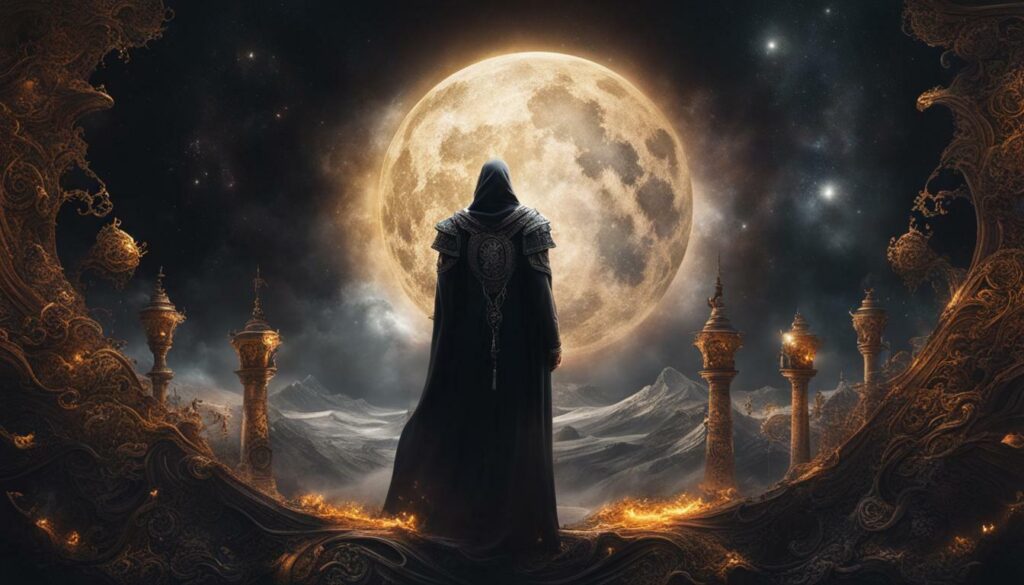
As we navigate the realm of astrology and its connection to religious beliefs, it is crucial to approach the topic with an open mind and a willingness to explore different perspectives. While some may view it as incompatible with their faith, others may find value in its potential insights and interpretations. Ultimately, the complexities of astrology’s connection to demonic forces remain a subject of ongoing debate, and it is up to individuals to form their own informed opinions.
Astrology in Islamic Teachings
In exploring the role of astrology within Islamic teachings, we encounter a diverse range of perspectives. While fortune-telling is generally condemned in Islam, some scholars within the Sufi tradition argue that astrology may be permissible as a scientific study.
Islamic teachings trace astrology back to the ancient prophet Idris, who is believed to have practiced this ancient art. Astrology’s roots lie in the astral cult, combining elements of religion and science in its study of heavenly bodies and their influence on human lives.
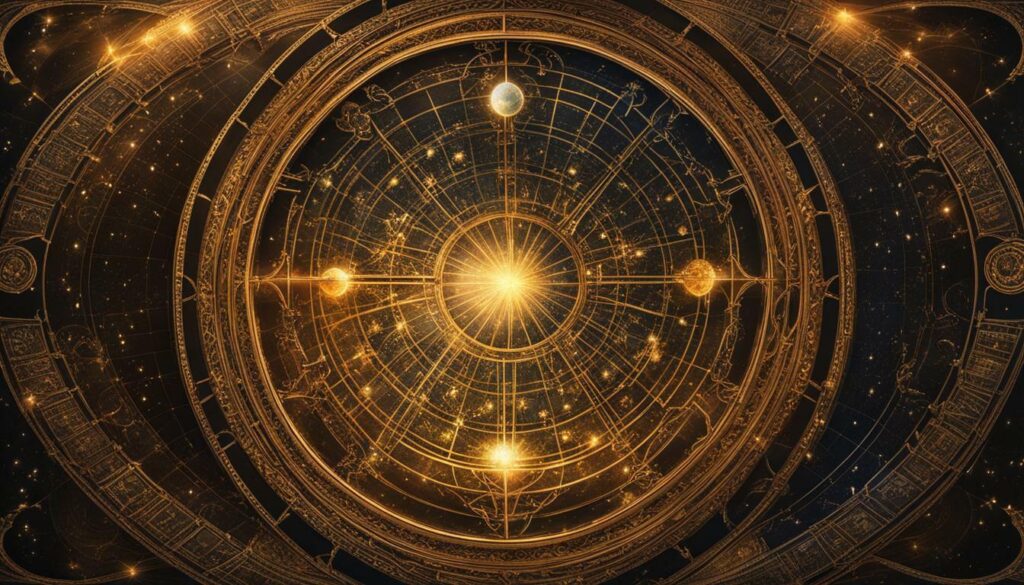
However, the question of astrology’s connection to the supernatural remains a topic of debate. Accurate predictions made through astrology raise the possibility that supernatural beings, such as jinns, may deceive fortune-tellers. This belief adds an intriguing dimension to the exploration of astrology and its impact on individuals.
While Prophet Muhammad opposed superstitious beliefs, including the notion that solar eclipses are bad omens, there are still ongoing discussions among Islamic scholars regarding the permissibility and accuracy of astrology. The complexities of this topic necessitate a comprehensive understanding of its historical, religious, and scientific dimensions.
Astrology’s Influence on Human Lives: Exploring Divine Intervention and the Occult
Astrology, the study of heavenly bodies and their influence on human lives, is a practice that has intrigued and captivated people for centuries. It is a unique blend of religion and science, offering insights into our personalities, relationships, and life events. However, the subject of astrology’s connection to divine intervention and the occult remains a topic of debate.
Many believe that astrology is a means by which divine forces intervene in our lives. They argue that the alignment of celestial bodies at the time of our birth can determine our destiny and shape our future. According to this belief, astrology serves as a channel through which higher powers convey messages and guide us toward our purpose.
On the other hand, skeptics view astrology as falling into the realm of the occult. They question its scientific validity and argue that the practice relies on supernatural forces that cannot be explained by the laws of physics. They suggest that astrology may attract negative spiritual energies and open doors to the influence of evil spirits.
Key Points:
- Astrology is a combination of religion and science, exploring the influence of heavenly bodies on human lives.
- Some believe astrology serves as a means of divine intervention, guiding individuals toward their purpose.
- Skeptics argue that astrology falls into the realm of the occult and may attract negative spiritual energies.
The connection between astrology and divine intervention, as well as the influence of the occult, raises intriguing questions about the nature of this ancient practice. While astrology has provided accurate predictions for some, others question the source of these insights. Is it the result of our own intuition or the work of supernatural beings such as jinns, as some believe?
The debate surrounding astrology’s connection to divine forces, the occult, and its compatibility with scientific principles continues to provoke thought and discussion. As we navigate our own beliefs and opinions on this fascinating subject, it is essential to approach the topic with an open mind and explore various perspectives.
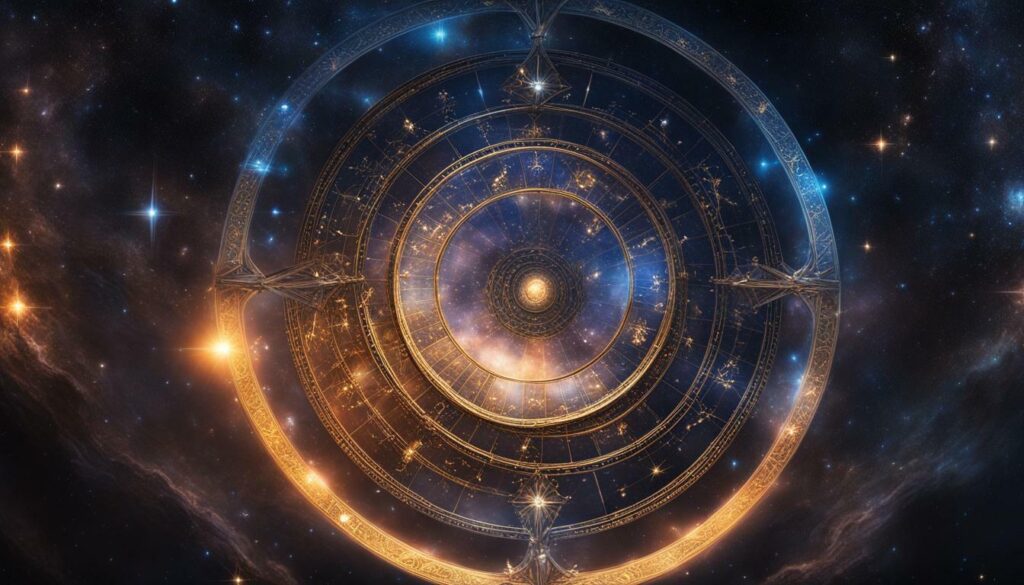
When it comes to astrology, there are those who believe that its practice is not only about studying the movements of celestial bodies but also involves delving into the supernatural realm. According to some beliefs, astrology can tap into hidden forces and connect with spiritual entities beyond our understanding. This connection has led to debates about whether astrology is influenced by evil spirits.
In certain spiritual traditions, it is believed that supernatural beings called jinns can deceive fortune-tellers and manipulate the astrological predictions. These jinns are thought to possess knowledge of the future and can use their powers to mislead individuals seeking guidance through astrology. This notion raises questions about the accuracy and reliability of astrological readings.
Does Astrology Have a Dark Side?
- Some argue that astrology is a replacement for God and can introduce spiritual forces of evil into one’s life.
- Biblical teachings condemn astrology as a form of divination, warning against its use.
- While some accurate predictions can be made, the involvement of supernatural forces complicates the interpretation of astrological readings.
It’s important to note that these beliefs are not universally accepted and there are differing views on the connection between astrology and the supernatural. The topic of astrology’s association with evil spirits remains a subject of debate among scholars and practitioners alike.
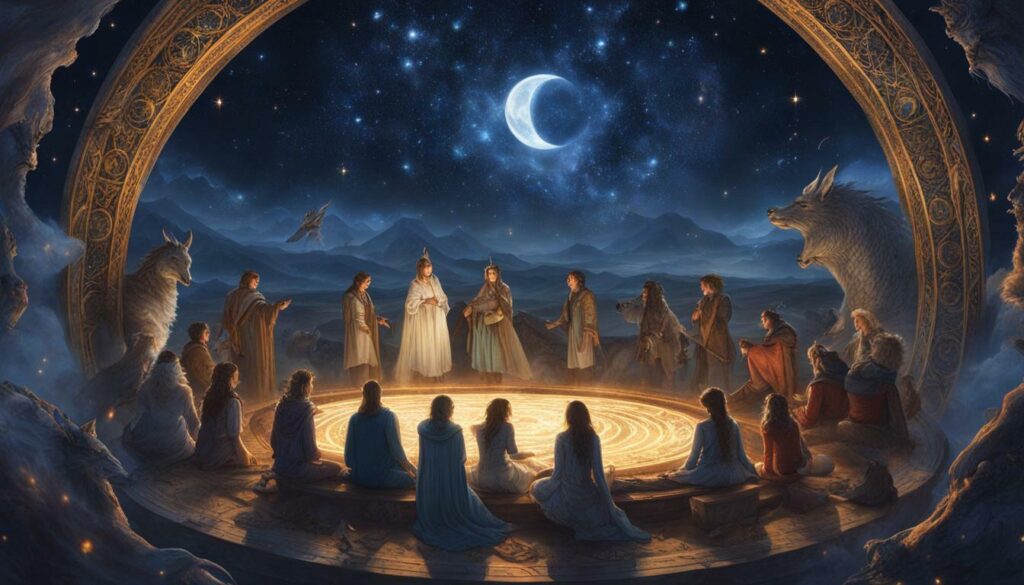
Astrology and Religious Beliefs: Exploring the Complexities
As I delve into the topic of astrology and its connection to religious beliefs, it becomes apparent that there is a multifaceted perspective on this matter. While some religious texts, like the Bible, condemn astrology as a form of divination, they also mention wise men who used astrology to find Jesus. This contrasting portrayal leaves room for interpretation and raises questions about the true nature of astrology.
In Islamic teachings, fortune-telling is generally condemned, but there are differing opinions among scholars when it comes to astrology. Some argue that astrology may be permissible as a scientific study, while others maintain a more skeptical stance. Astrology’s roots in the astral cult and its blending of religion and science further complicate the issue, making it an intriguing subject for exploration.
The Age-Old Debate: Religion versus Science
- Religious texts often view astrology as a replacement for God and warn against its use.
- The study of heavenly bodies and their influence on human lives is seen as a blend of religion and science in astrology.
- The compatibility of astrology with religious beliefs remains a topic of debate among scholars.
The Influence of Supernatural Beings
- Accurate predictions made by astrologers have led some to believe in the involvement of supernatural beings, such as jinns.
- These beings are said to deceive fortune-tellers and manipulate the outcomes of astrological readings.
Prophet Muhammad, the central figure in Islamic teachings, opposed superstitious beliefs, including the notion that solar eclipses are bad omens. However, the debates among scholars regarding the permissibility and accuracy of astrology continue.
While astrology may provide insights that modern psychology fails to explain, it is also argued to be incompatible with the laws of physics. The complexities surrounding astrology’s connection to religious beliefs and its potential influence on human lives make it an intriguing and debated topic. The true nature of astrology and its correlation to demonic forces remains a captivating subject of exploration.
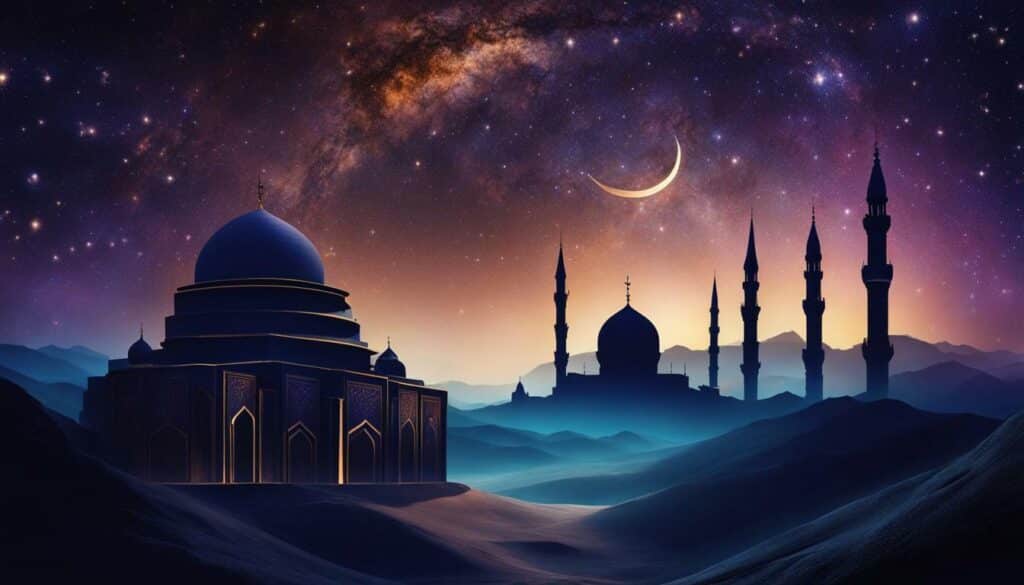
As astrology gains popularity, questions arise about its connection to spirituality. While some view astrology as a harmless tool for self-reflection and guidance, others raise concerns about its potential to introduce spiritual forces of evil. Let’s explore the role of astrology in spirituality and debunk some common misconceptions.
Astrology and Personal Insight
Astrology is often seen as a way to gain personal insight and understand oneself better. By studying the positions of celestial bodies at the time of birth, astrologers believe they can interpret personality traits and potential life events. This perspective ties astrology more closely to the realm of psychology rather than the supernatural. It offers a framework for self-reflection and personal growth, providing individuals with a sense of empowerment and understanding.
Astrology and the Divine
One misconception about astrology is that it replaces God or divine intervention. However, many who practice astrology do not see it as a replacement for their faith. Instead, they view it as a complementary tool that can deepen their spiritual connection. Astrology allows individuals to explore the interconnectedness of the universe and their place within it. It can be a source of inspiration, prompting individuals to seek a higher meaning and purpose in their lives.
Understanding Astrology’s Limitations
While astrology can offer insights and guidance, it is important to recognize its limitations. Astrological predictions are not set in stone, and free will plays a significant role in shaping our lives. Additionally, astrology should not be used as a substitute for professional advice or decision-making. It is essential to maintain a critical mindset and use astrology as a tool for self-reflection rather than relying solely on its predictions.
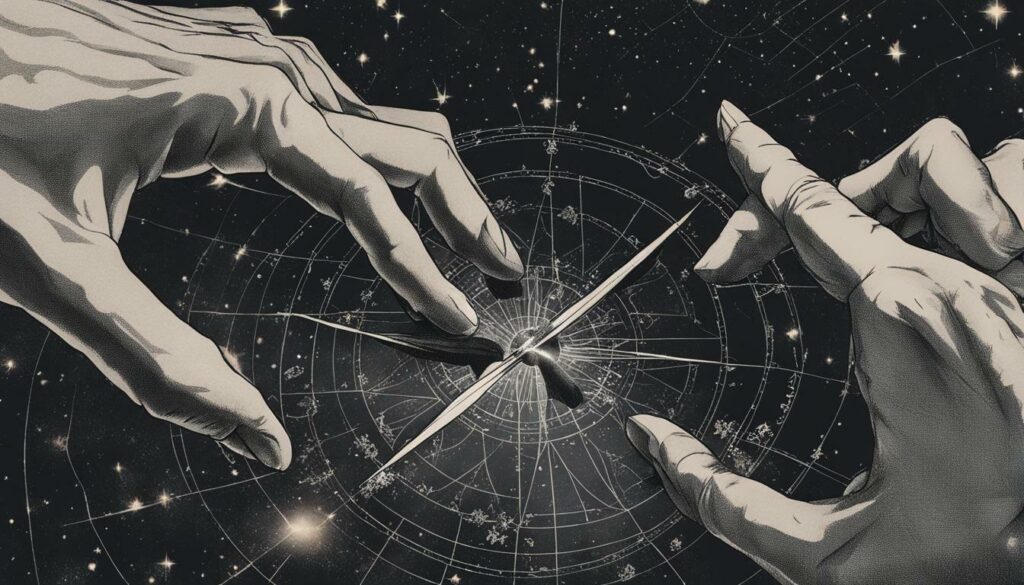
In conclusion, astrology’s role in spirituality remains a topic of debate. While it can provide personal insight and deepen one’s connection to the divine, it is important to approach it with a critical mindset. By understanding its limitations and using it as a tool for self-reflection, we can appreciate astrology’s potential benefits while debunking common misconceptions.
Astrology and the Laws of Physics
When exploring the topic of astrology and its connection to demonic forces, one aspect that often arises is its compatibility with the laws of physics. Critics argue that astrology’s association with the occult and the supernatural raises doubts about its scientific validity.
While astrology utilizes the positions and movements of celestial bodies to make predictions, it is important to note that it does not adhere to the principles of physics in the same way that other scientific disciplines do. Astrology operates on the belief that these celestial bodies exert influences on human lives, which is not a concept widely accepted within the realm of physics.
This disparity between astrology and the laws of physics has fueled skepticism among scientists and skeptics alike. The lack of empirical evidence to support astrology’s claims has led many to dismiss it as pseudoscience. However, astrology’s proponents argue that it should be viewed through a different lens, one that incorporates the spiritual and metaphysical dimensions of human existence.
Ultimately, the question of astrology’s compatibility with the laws of physics remains unresolved. While it may not conform to traditional scientific principles, astrology continues to captivate the minds and hearts of many who believe in its power to provide insights and guidance. Whether astrology is seen as a fascinating blend of religion and science or a misguided belief system, it continues to spark debate and intrigue in its connection to the supernatural.
Key points:
- Astrology’s association with the occult and supernatural raises questions about its scientific validity.
- Astrology does not adhere to the principles of physics in the same way as other scientific disciplines.
- Skepticism regarding astrology stems from the lack of empirical evidence and its reliance on metaphysical concepts.
- The compatibility between astrology and the laws of physics remains a subject of ongoing debate.
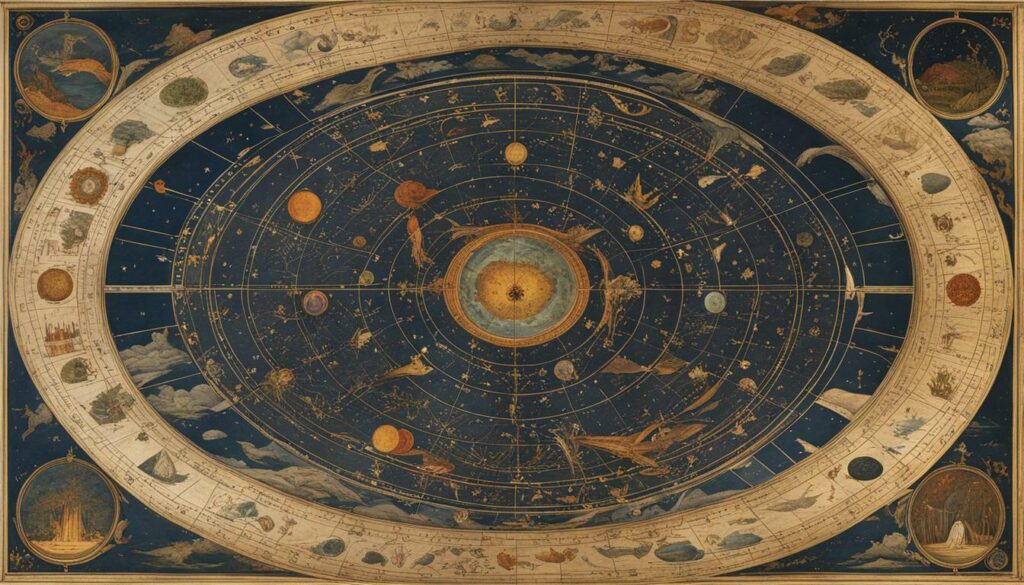
When exploring the connection between astrology and demonic forces, it becomes clear that the topic is multifaceted and surrounded by debate. On one hand, the Bible condemns astrology as a form of divination and warns against its use. However, it also acknowledges the existence of wise men who used astrology to find Jesus, highlighting the complexity of this issue. Some argue that astrology can introduce spiritual forces of evil, as it is seen as a replacement for God in some cases.
In Islamic teachings, fortune-telling, including astrology, is generally condemned. However, there are differing views among Sufi scholars who argue that astrology may be permissible as a scientific study. They believe that it can offer insights into the natural world and the effects of celestial bodies on human lives.
The roots of astrology can be traced back to the astral cult and the ancient prophet Idris. It is considered a blend of religion and science, focusing on the study of heavenly bodies and their perceived influence on individuals. While astrology can make accurate predictions, some believe that these predictions may be influenced by supernatural beings called jinns, who are believed to deceive fortune-tellers.
Prophet Muhammad opposed superstitious beliefs, including viewing solar eclipses as bad omens. However, there are ongoing debates among scholars regarding the permissibility and accuracy of astrology within the Islamic faith. Some argue that astrology may provide insights that modern psychology cannot explain, while others believe it is incompatible with the laws of physics, raising questions about its scientific validity.
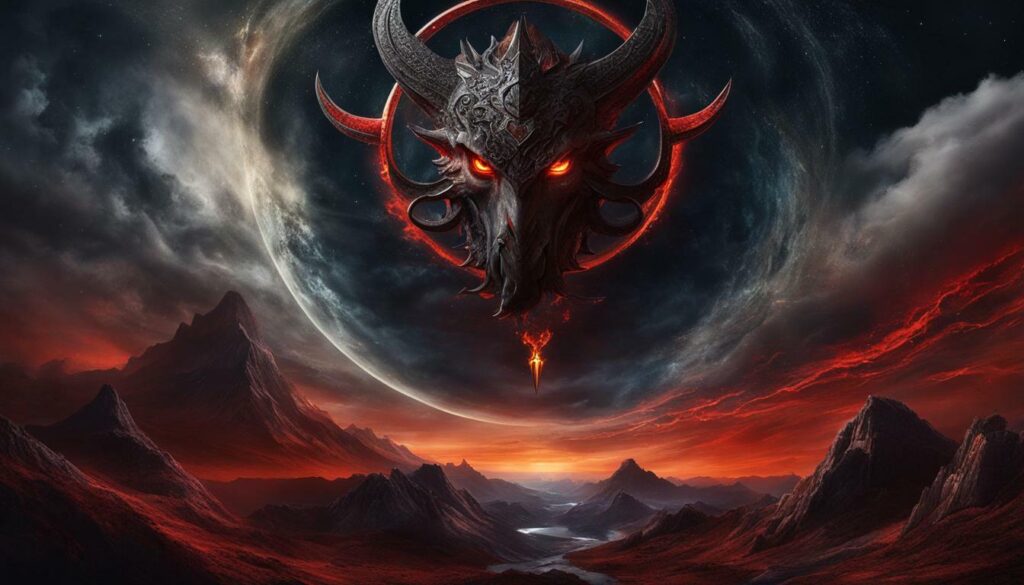
The connection between astrology and demonic forces is a complex and debated topic. While some religious texts condemn astrology as a form of divination, others acknowledge its historical significance and the possibility of using it for gaining insights. The practice of astrology is deeply rooted in spirituality, science, and the belief in the influence of celestial bodies on human lives. Whether one views astrology as a harmless pursuit or a potentially deceptive practice influenced by supernatural forces remains a matter of personal belief and interpretation.
Conclusion
After exploring the myths and facts surrounding astrology and its connection to demonic forces, it becomes clear that the topic is a complex and debated one. While the Bible condemns astrology as a form of divination, it also mentions wise men who used astrology to find Jesus, highlighting the potential for different interpretations.
In Islamic teachings, fortune-telling is generally condemned, but some Sufi scholars argue that astrology may be permissible as a scientific study. The roots of astrology in the astral cult and its combination of religion and science further add to the complexity of the subject.
Furthermore, astrology’s study of heavenly bodies and their influence on human lives raises questions about divine intervention and the occult. Some believe that astrology can make accurate predictions, but it is also believed that these predictions may be influenced by supernatural beings like jinns, who may deceive fortune-tellers.
Prophet Muhammad’s opposition to superstitious beliefs and debates among scholars regarding the permissibility and accuracy of astrology within the Islamic faith also contribute to the multifaceted nature of the topic. Additionally, astrology’s relationship with modern psychology and the laws of physics further fuels the ongoing discourse surrounding its validity.
In conclusion, the question of whether astrology is demonic is subjective and open to interpretation. It is essential for individuals to consider various perspectives, examine the religious and cultural contexts, and make informed decisions based on their beliefs and values.
FAQ
Q: Is astrology considered demonic?
A: While some people believe that astrology has a sinister connection to demonic forces, the topic is complex and debated. The Bible condemns astrology as a form of divination, but it also mentions the wise men who used astrology to find Jesus. Islamic teachings generally condemn fortune-telling but some scholars argue that astrology may be permissible as a scientific study. It is believed that astrology combines religion and science, involving the study of heavenly bodies and their influence on human lives.
Q: Can astrology make accurate predictions?
A: Astrology claims to make accurate predictions based on the study of celestial bodies. However, some argue that these predictions may be influenced by supernatural beings, such as jinns or evil spirits, which deceive fortune-tellers. There is ongoing debate about the accuracy of astrology’s predictions.
Q: What is the stance of Prophet Muhammad on astrology?
A: Prophet Muhammad opposed superstitious beliefs, including the idea that solar eclipses are bad omens. However, there are debates among scholars regarding the permissibility and accuracy of astrology within the Islamic faith. His opposition to superstition suggests a cautious attitude towards astrology.
Q: Does astrology have a scientific basis?
A: Astrology combines elements of religion and science, as it involves the study of heavenly bodies and their purported influence on human lives. However, astrology’s connection to the occult and the supernatural raises questions about its scientific validity. Some argue that astrology is incompatible with the laws of physics.
Q: Is astrology a replacement for God?
A: Some argue that astrology can serve as a replacement for God and introduce spiritual forces of evil. The Bible condemns astrology as a form of divination and warns against its use. However, it also mentions that the wise men used astrology to find Jesus. The perception of astrology as a replacement for God is subjective and varies among different religious beliefs.
Q: Can astrology provide insights that modern psychology cannot explain?
A: Advocates of astrology suggest that it can provide insights that modern psychology cannot explain. However, skeptics often debunk astrology as a pseudoscience and attribute any accurate predictions to chance or psychological factors. The belief in astrology’s ability to provide unique insights remains a topic of debate.
Q: What are the roots of astrology?
A: Astrology is believed to have ancient origins and is associated with the astral cult. In Islamic teachings, it is believed that astrology was practiced by the ancient prophet Idris. However, astrology’s precise origins and historical development are subject to interpretation and speculation.
Q: Does astrology involve supernatural forces?
A: Some believe that astrology involves supernatural forces, such as jinns or evil spirits, which influence its predictions. These supernatural beings may deceive fortune-tellers and contribute to the accuracy or perceived accuracy of astrology. However, the existence and influence of these supernatural forces is a matter of belief and varies among different perspectives.
Q: Is astrology compatible with religious beliefs?
A: The compatibility of astrology with religious beliefs varies among different faiths and interpretations. While some religions, such as Islam, generally condemn fortune-telling and astrology, there are debates among scholars regarding its permissibility as a scientific study. It is ultimately up to individuals to reconcile astrology with their own religious beliefs.
Q: What is the connection between astrology and demonic forces?
A: The connection between astrology and demonic forces is a complex and debated topic. While some believe that astrology has a sinister connection to demonic forces, others argue that the belief in such a connection is subjective and varies among different religious beliefs. The Bible condemns astrology as a form of divination, but there are instances where astrology is mentioned in a positive light.
Q: Should I believe in astrology?
A: Whether or not to believe in astrology is a personal decision. It is important to consider different perspectives, including religious, scientific, and skeptical viewpoints. Ultimately, individuals should form their own opinions based on the information available and their own beliefs and values.

